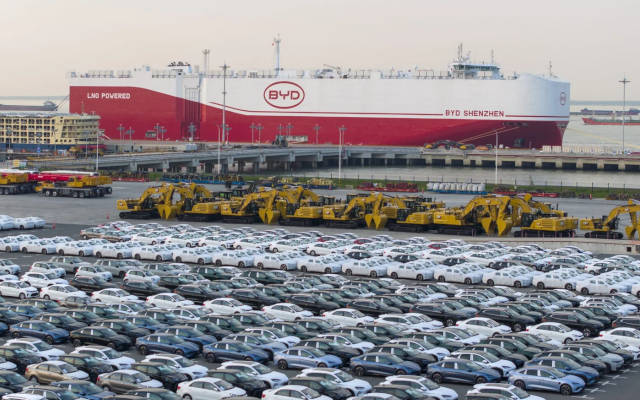China's EV Push in Brazil Triggers Labor, Tariff, and Safety Concerns

Chinese electric vehicle makers - led by BYD and Great Wall Motors - are aggressively expanding into Brazil, capturing market share through a mix of affordable imports and repurposed factories. But while the push is accelerating EV adoption in South America's largest economy, it is also igniting political and ethical backlash over labor conditions and product safety.
According to The New York Times, BYD shipped over 22,000 EVs to Brazil in just four deliveries this year, helping Chinese automakers claim nearly 8 percent of Brazil’s new car market. Yet that success has come with controversy. At a BYD construction site in Bahia, Brazilian officials are investigating alleged “slavery-like” working conditions affecting migrant laborers hired by subcontractors. The case has added fuel to calls from unions and local politicians to slow the influx of Chinese EVs and increase oversight.
Meanwhile, three Chinese automakers have committed to assembling vehicles in Brazil, taking over facilities formerly owned by Ford and Mercedes-Benz. But critics argue that these moves are more cosmetic than structural. The majority of components—especially batteries—will still be sourced from China, limiting domestic supply chain development and the creation of high-value Brazilian jobs.
To defend its auto sector, Brazil is weighing tariff increases on EV imports, potentially raising the rate from the current 10 percent to 35 percent. Industry groups argue that without stronger protections, Chinese companies could undercut local automakers before substantial domestic production is up and running.
In China itself, a growing chorus of domestic media, regulators, and consumers are raising concerns about the safety and quality of Chinese-made EVs. Reports have flagged inconsistencies in crash protection, battery durability, and software reliability. These concerns risk undermining the global credibility of China’s EV sector—particularly as it expands into more regulated markets like Europe and South America.
Why This Matters for EVWORLD Readers
- Labor risks complicate global expansion: BYD’s labor controversies in Brazil highlight the reputational risks Chinese EV firms face as they scale internationally.
- Quality concerns at home: Mounting criticism of Chinese EVs within China itself underscores the challenge of competing abroad on reliability and safety, not just price.
- Brazil as a bellwether: Brazil’s response—ranging from tariffs to regulatory investigations—could serve as a model for other emerging markets grappling with Chinese EV penetration.
Bottom Line
China’s electric vehicle juggernaut is reshaping mobility in countries like Brazil, but not without raising serious questions about labor ethics, domestic economic impact, and product integrity. As Chinese automakers pursue global dominance, their ability to meet international standards—not just on emissions, but on workforce treatment and vehicle safety—will be critical to long-term credibility and success.
Source: The New York Times, July 21, 2025
Original Backlink
Views:93
Articles featured here are generated by supervised Synthetic Intelligence (AKA "Artificial Intelligence").
